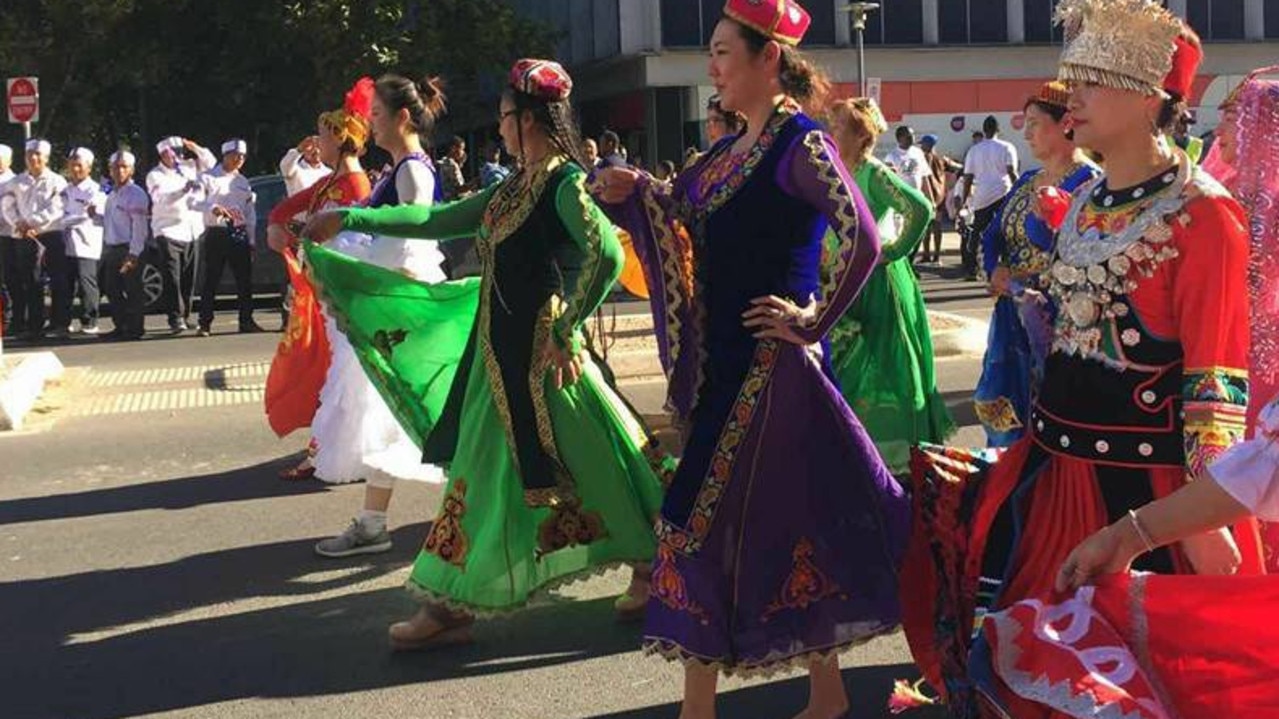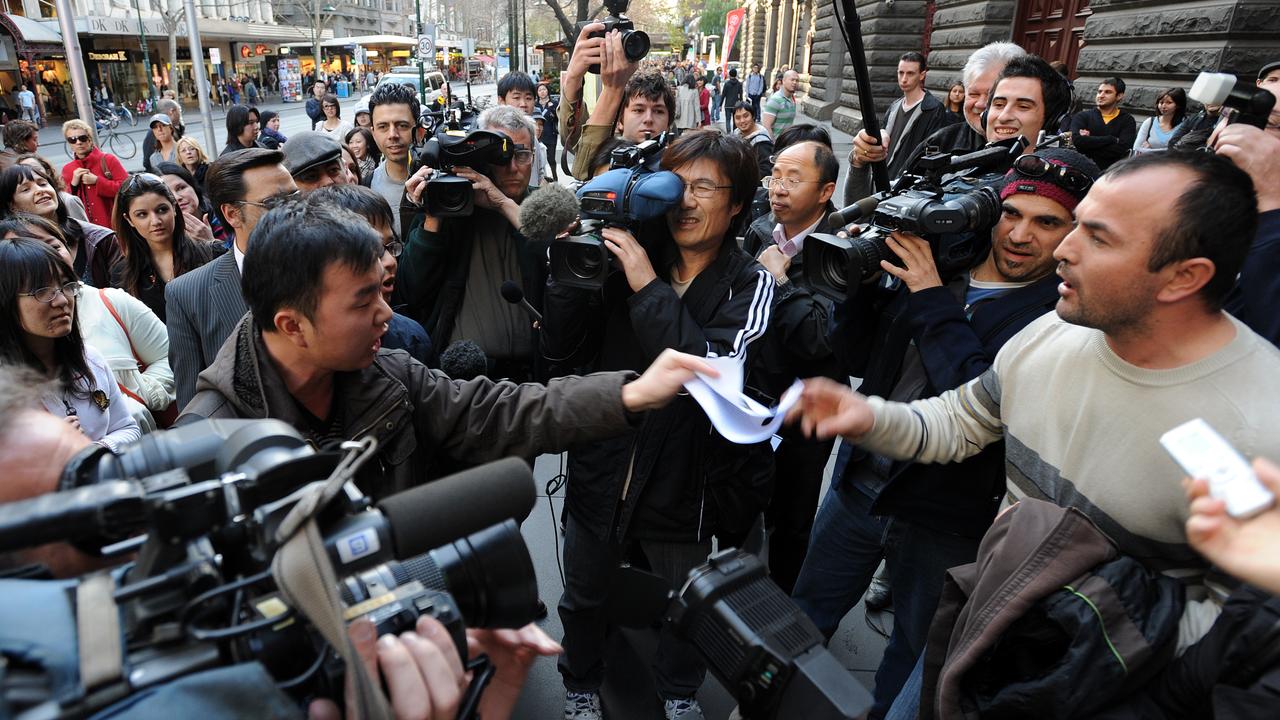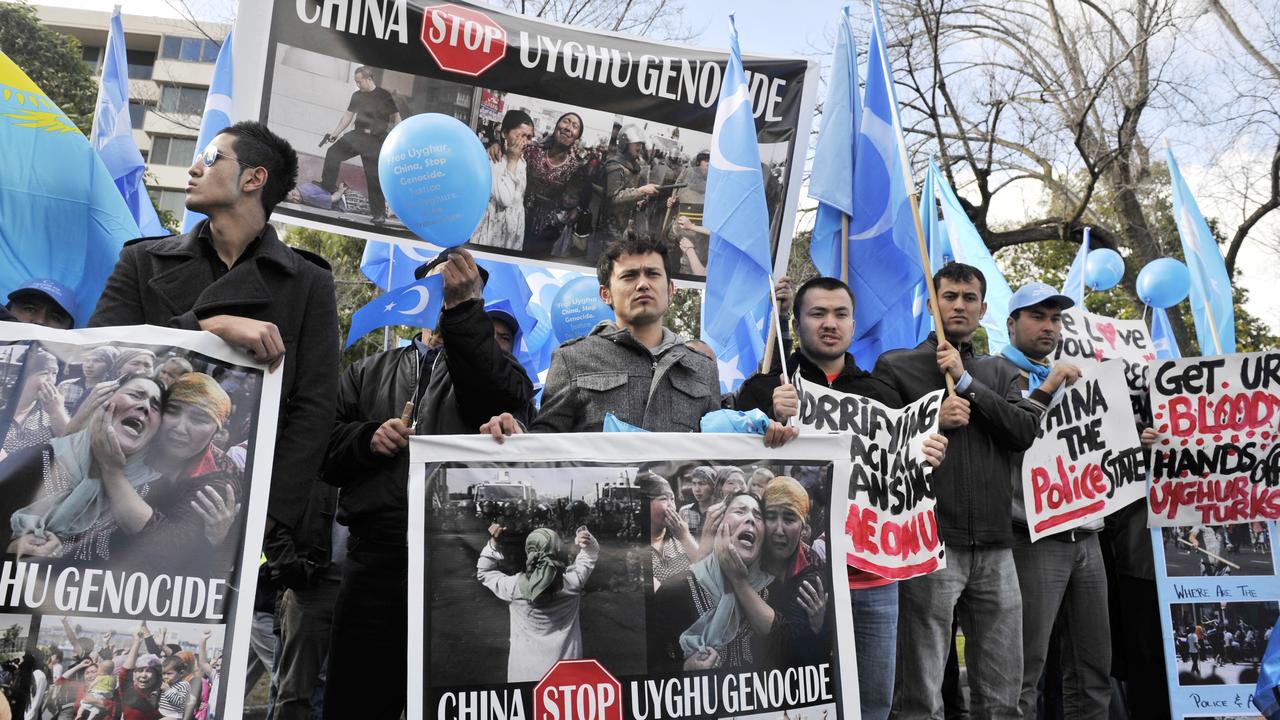China’s covert tactics in Australia to manipulate public opinion
China is eager to change people’s views about one controversial issue — and the manipulative tactics it’s using in places like Australia have been revealed.
The Chinese Communist Party is exploiting multiculturalism and using covert tactics in countries like Australia to try and manipulate public opinion about its shocking human rights abuses, a new report has revealed.
The Australian Strategic Policy Institute’s examination of the CCP’s influence operations in the Xinjiang diaspora, shines a light on how the party is trying to twist the narrative around its extreme actions in the Xinjiang province, where China has been accused of committing crimes against humanity and possibly genocide against the Uyghur population.
The report explains how the CCP’s “united front system” employs a range of different methods and tactics to help “guide” overseas Chinese towards the “correct” attitude and behaviour, to change perceptions overseas, and to help increase the party’s power and prestige internationally.
“In free and open countries, such as Australia and Canada, it exploits democratic institutions, civic participation and multiculturalism to create the false impression that Xinjiang is not that dissimilar to their own societies and amplifies pro-CCP voices and narratives,” the report states.
“In less open societies, such as Turkey, Kazakhstan and Kyrgyzstan, it exploits business and cultural links while leveraging the growing economic dependency of these countries on China.”
The report says the party’s influence operations can be highly effective, especially when the activities go unnoticed. This is particularly problematic in countries where democratic protections and transparency are lacking, allowing its efforts to quickly alter public opinion.
Winning over public opinion is important for the CCP and “united front work” can use “psychological manipulation and material inducements” to convince those living overseas with connections to China, to promote its views.
One example of the way the CCP is trying to influence views in other countries, which has largely gone unnoticed, is through the work of community organisations including in Australia.
The South Australian Xinjiang Association was highlighted as a case study as it appears to represent members of the Uyghur population but is Han-dominated and has links to the CCP — a claim the group has denied.
The association is not easily recognisable as being aligned with the Communist party and its members marched as part of Australia Day celebrations wearing the traditional attire of the Uyghurs — leading to accusations the group had hijacked the culture, dress and music of the region.
“You people have been stealing our uighur [sic] culture, stealing our clothes’, wrote a local Uyghur resident in response to event photos posted on the association’s Facebook page. “… Just because you were born in that region does not mean you can take the culture and traditions of the natives that once occupied that area.”

The founding president of the association Irena Zhang has said she does not think Uyghurs were being mistreated in Xinjiang, and the association has hosted members of the Chinese Embassy in Australia and other Chinese diplomats.
While Ms Zhang was born in Xinjiang, her father Victor Zhang Wei is a famous artist who previously worked for the state-run Xinjiang Daily newspaper, and her mother is of mixed Han and Russian parentage.
The group has denied the claims in a statement.
“Our Association is not in any way linked to the Chinese Communist Party’s United Front Work Department,” the Xinjiang Association of SA wrote in 2020.
“Our Association’s role is to provide community and social activities to support migrants and their families from Xinjiang as well as the broader Australian-Chinese community.”
The association enjoyed a good public profile until recently and its members were photographed with former South Australian Premier Jay Weatherill.
“By claiming to speak on behalf of ‘Xinjiang’ and its people, these community organisations can neutralise — and even silence — genuine criticisms of CCP policies in Xinjiang while sowing fear and confusion,” the report states.
The association has denied any association with the Chinese Communist Party’s United Front Work Department but some academics and security experts told The Australian they believe it operates in line with the organisation.
“Our research demonstrates how these groups can sow distrust and fear in the community, mislead politicians, journalists and the public, influence government policies, cloud our assessment of the situation in Xinjiang, and disguise the CCP’s interference in foreign countries,” report authors Lin Li and James Leibold say.
Ambiguity around who can claim to be from the Xinjiang has also been created by China’s use of the term “overseas Chinese from Xinjiang”, which can include people from indigenous Turkic-speaking communities such as the Uyghurs, Kazakhs, Kyrgyz; as well as the Han Chinese (and their descendants) who moved into the province to colonise the area.
Millions of Han Chinese have settled in Xinjiang in the past 70 years, with the aid of the paramilitary Bingtuan established by Chairman Mao in 1954.
“This process of settler colonialism continues overseas when Bingtuan families and their children emigrate and then claim to speak on behalf of the region and its indigenous communities,” the report states.


The research forms part of ASPI’s Xinjiang Data Project which has documented the CCP’s ongoing program of human rights abuses in Xinjiang for the last two years.
It explains that “united front work” aims to control people who live outside of China but have an ethnic or historical connection to the country, regardless of their citizenship status.
Its activities can include mobilising community groups and individual members of the Xinjiang diaspora to promote its own policies and interests abroad, sometimes through deceptive and coercive means.
“United front work involves a range of methods. In general, they include emotional manipulation (highlighting heritage bonds with the motherland), material incentives and inducements, and offering political honours and prestige status to members of the Xinjiang diaspora who are willing to advance the CCP’s versions of ‘China’ and ‘Chineseness’,” the report states.
The report also uncovers how the CCP is actively monitoring and collecting information on members of the Xinjiang diaspora and creating databases that could strengthen the party’s overseas surveillance and interference work.
To counteract these activities, the report calls for governments to consider enacting foreign interference legislation, and if this is already in place, to review its effectiveness in monitoring and disrupting CCP-linked community organisations and other agents of foreign interference.
It calls for the media, non-governmental organisations and research institutes to increase public awareness of the links between community organisations and the CCP; and for politicians, public servants and other elites to avoid endorsing these groups.
Training courses should also be developed for federal and local-level politicians (and other concerned agencies and community leaders) on the united front system and how to identify the red flags associated with CCP-linked community organisations.






